After two days of “typhoon holiday” last Wednesday and Thursday, we found out around midnight on Friday that the train tracks between Taipei and Hualien were damaged during Typhoon Gaemi, canceling our train for that morning. Thank goodness Jay, my TA, who was teaching a summer piano camp for Taiwanese prodigies in Hualien this summer, messaged me with the news. I had checked the TRA website earlier that day and everything looked fine. When I found out, I freaked out, stewed for a bit, then decided to wake up early and go to the train station to see what could be done. My fretting was in vain. Taiwan’s infrastructure can handle this sort of stuff. It doesn’t hurt that it’s a pretty small country (the whole island of 23 million people could fit inside the state of Indiana). I rescheduled our tickets to take the bullet train to Kaohsiung and transfer to a Taiwan Railway train (older technology but still great) to Taitung. We arrived earlier than we would have on the original schedule, and the ride was equally scenic.
It was raining hard when we arrived in Taitung. Weather data tells me it rained about 2.5 inches that day. It was a bit depressing to see that more rain was possible the whole time we would be here.
Our first full day here turned out to be amazing. No rain all day. It was sunny with big, gorgeous clouds. I’ve got the sunburn to prove it. We rented a tiny car to get around to some of the more interesting spots (Taitung County is the second largest by area and Taiwan’s least populated county on the main island).
First, we went to Sanxiantai (三仙台) and hiked out to the lighthouse and back. Next, we visited the Amis Cultural Center. It was very enriching—kind of like the Polynesian Culture Center but not commercialized and more authentic. In the visitor center, a brilliantly designed museum currently features art installations by Rahic Talif. We also watched a live show by Amis Kekeng, a musical group that performs traditional music of the Amis people. The young performers were talented and engaging. One of the songs sung by Amis Kekeng suggested that so many themes of the colonization of Indigenous peoples are transcendent and universal. The lyrics of this early 20th-century song, when Japan occupied Taiwan and conscripted Taiwanese and Indigenous young people to fight in Southeast Asia, expressed the anxiety felt by the conscripts who hoped their remains would be able to be repatriated to Taiwan if they were killed in the war.

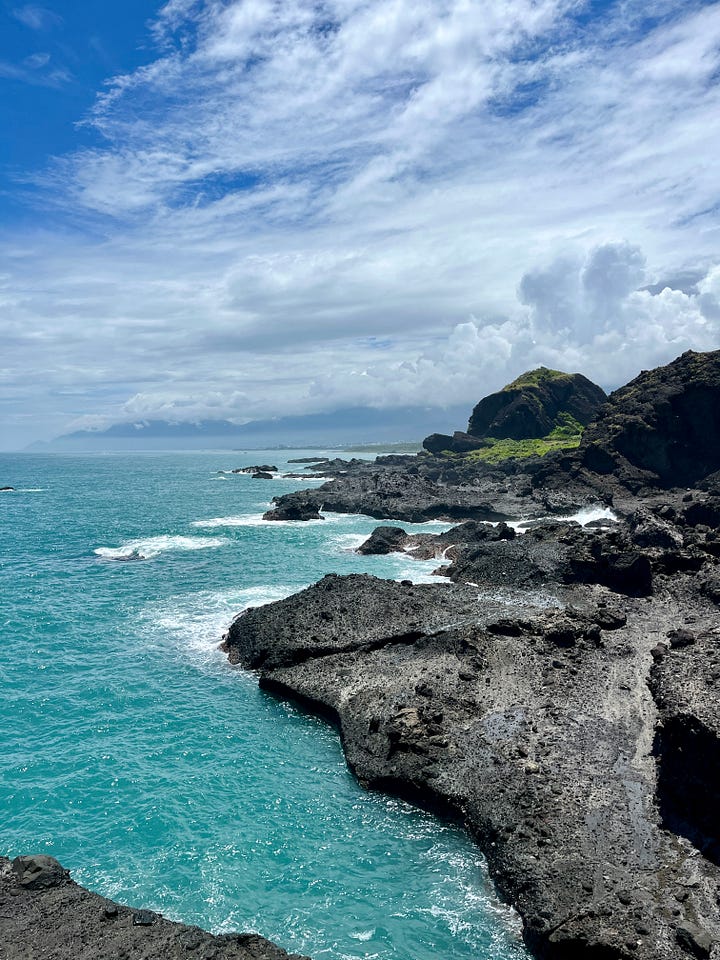
After these adventures, we enjoyed an al fresco dinner of salad (including vinaigrette with mulberries grown on the restaurant’s property), a Taiwan version of vitello tonnato (made with slow-roasted local pork instead of veal), and paella (rice and seafood are plentiful here) at the rustic Cape Cafe in Dulan. Chatting with Dutch owner/chef Nigel was one of the highlights of the day. Hearing his story about meeting a girl from Taiwan, leaving his French-Japanese fusion cuisine job in Okinawa, and moving to Dulan eight years ago was a reminder of how wonderful most of the humans on this planet are. He’s a kindhearted soul passionate about food and is now married to the girl who drew him to Taiwan. Check it out next time you’re on the southeast coast of Taiwan.
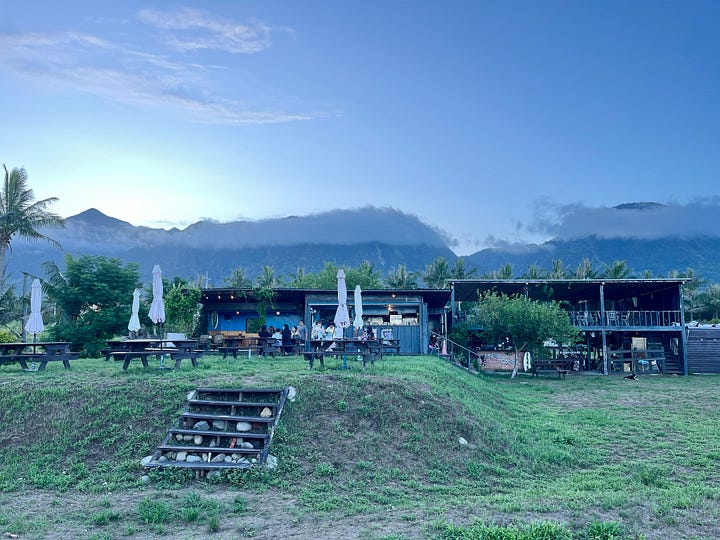
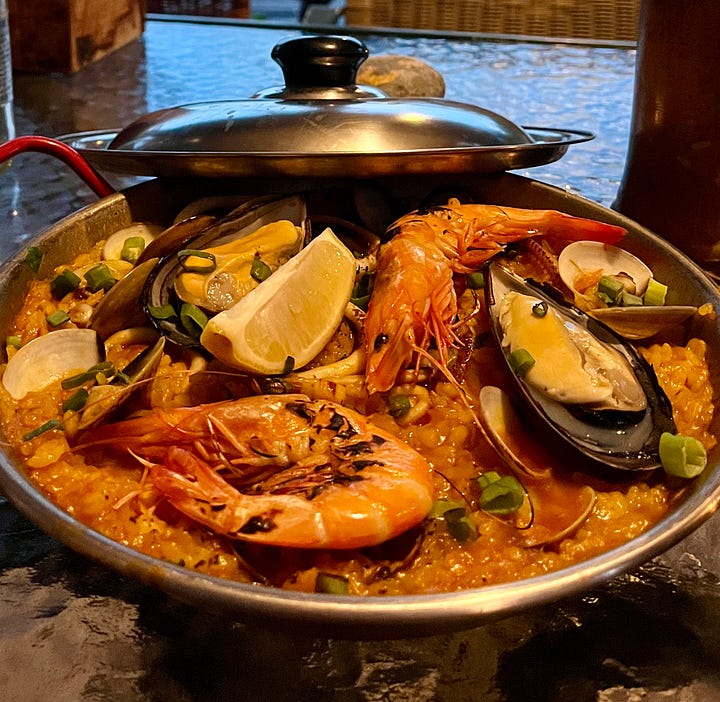

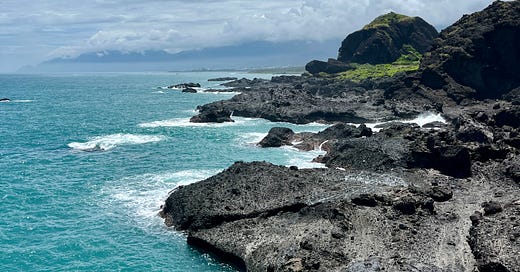



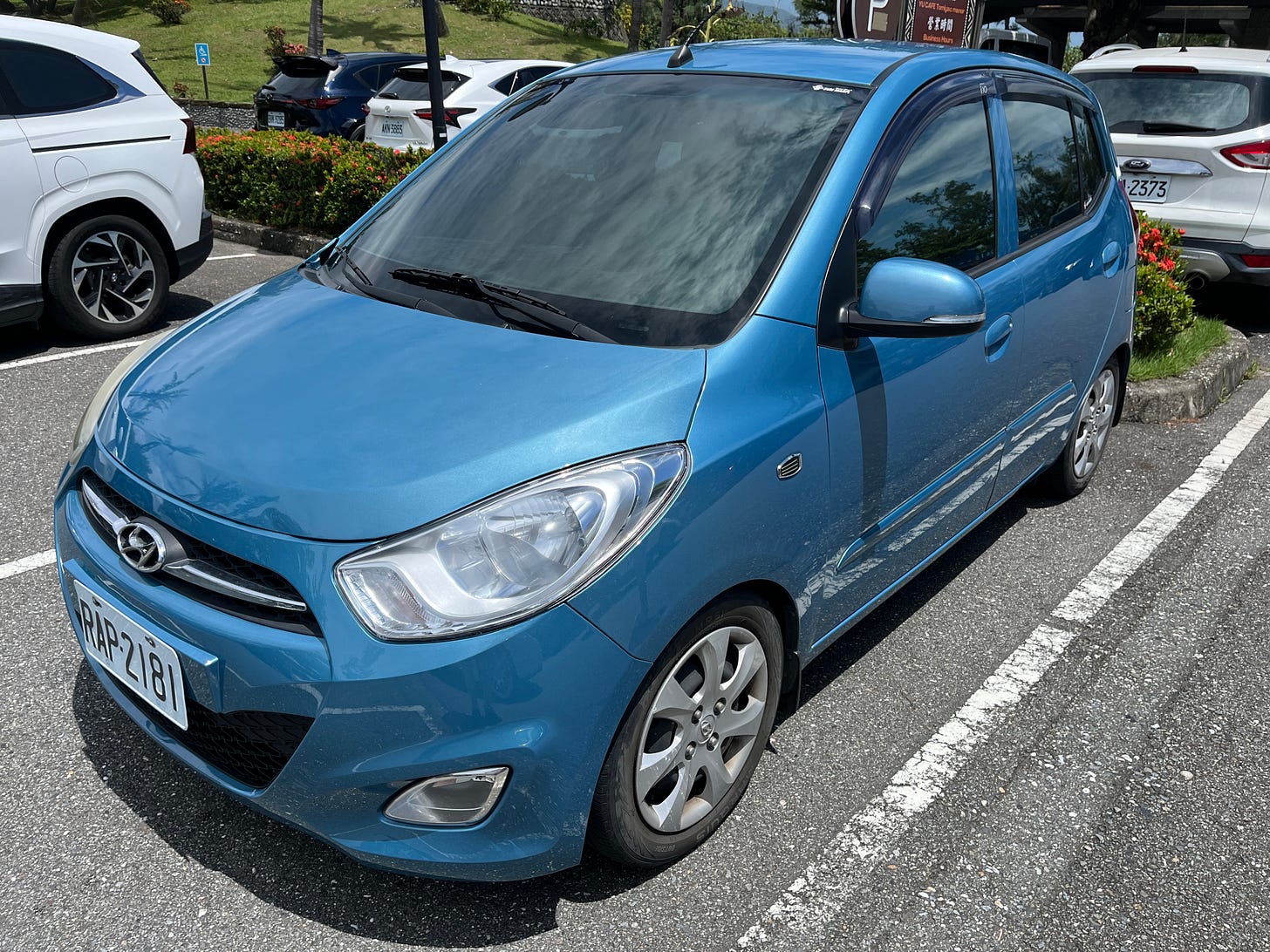
Thanks. Really. Thank you. Your posts bring back great memories, but even more they give impetus to complete a plan my daughter has proposed. We hope to visit Taiwan as a family. While living in Africa, and doing Land Cruiser dirt trips all over Kathy gave us a name that may be less well received in Asia. We were “The Gang of Four”. Nonetheless we have added 2 more and I sincerely hope we can see Taiwan through a slower pace, a more encompassing style than I did as a missionary there and later as a businessman. I have no illusions about losing- what was it- my fossilized incorrect language habits? Thanks again for your windows into a new version of Taiwan that seems to be more integrated, more self aware, and less frenetic about being the production point of the world. Am I getting the right impression?
Finally getting a first row seat to these remarkable adventures! It’s as complex and rewarding as the paella last night, but perhaps the bit that will linger with me most is witnessing your genuine curiosity and delight and connecting with the Taiwanese people. They’re as stunned by your facility with the language as I am. I don’t understand the content of your conversation, but the animation and laughter of these exchanges says that we’ll all be turning over these moments of connection for a long time to come.